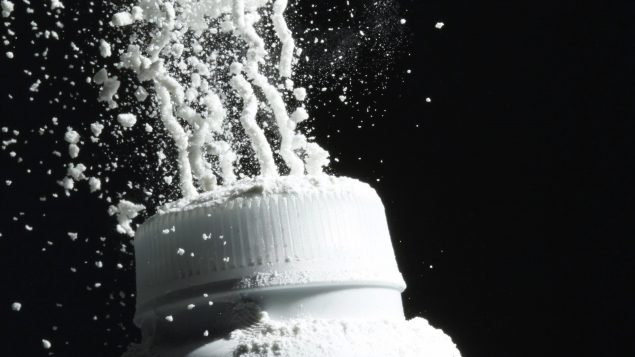Health Canada says Canadian consumers should avoid inhaling talc powder or using products containing talc on the female genital area, as exposure may be harmful to lungs and is a possible cause of ovarian cancer.
The warning comes after Health Canada and Environment and Climate Change Canada completed a draft screening assessment of talc under Canada’s Chemicals Management Plan.
The draft screening assessment found two potential areas of concern: inhaling fine particles of talc with everyday products like baby powder, body powder, face and foot powders; and exposure of the female genital area to products containing talc such as body powder, baby powder, diaper and rash creams, genital antiperspirants and deodorants, body wipes and bath bombs.

Puertorican gymnast Angel Ramos puts talcum to parallel bars during Men’s Qualification and Team final, at the XVI Pan-American Games in Guadalajara, Mexico, on October 25, 2011. (Alfredo Estrella/AFP/Getty Images)
A number of class action lawsuits in the U.S. and Canada launched against Johnson & Johnson contend that longtime use of its talcum powder for feminine hygiene resulted in the development of the plaintiffs’ ovarian cancer.
The cosmetics giant has denied its product, which has been on the market since 1894, causes the disease.
Health Canada advises consumers to minimize their exposure to talc products, keep it out of reach of children and find alternatives that do not contain talc.
However, the same draft assessment found that talc, which is a naturally occurring mineral used in a wide range of commercial and industrial applications, is not harmful to the environment and does not suggest human health risks if ingested in food or drugs, or through skin or inhalation exposures from pressed powders such as eye shadows or blushes.
With files from CBC News and The Associated Press







For reasons beyond our control, and for an undetermined period of time, our comment section is now closed. However, our social networks remain open to your contributions.